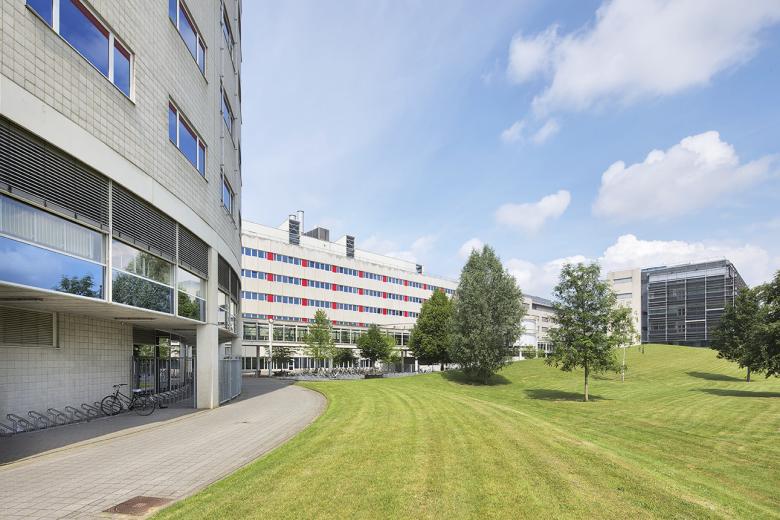Research provides insight into COVID-related heart damage
Maastricht UMC+ closely monitors the heart health of COVID patients during, and after, their admission to the intensive care unit (ICU). Research now shows a link between heart damage and ICU survival rates. Additionally, more information about heart damage after an ICU stay due to COVID-19 is being studied.
Since the first wave of the corona pandemic, Maastricht UMC+ has been monitoring and investigating the heart health of COVID patients admitted to the ICU with daily echocardiograms (ECG) and by monitoring two important substances found in the blood: hs-cTnT and NT-proBNP. These substances can indicate damage to the heart muscle and heart function respectively. By monitoring these substances on a daily basis, it was possible to chart their course during an entire ICU stay. In addition, doctors and researchers of MUMC+ follow up with these patients even after they have left the ICU.
This collaboration between intensive care, cardiology and radiology has led to three publications in leading scientific journals. Two of these provide insight into the role of the heart during an ICU stay and one publication shows what heart damage is still visible six months after leaving the ICU.
Coronary artery calcificationan
A CT scan when first admitted to the ICU mapped patients’ coronary artery calcification. This calcification is normally accelerated by risk factors such as smoking, high blood pressure, high cholesterol and obesity. The more calcification, the more vulnerable the heart is to developing a heart attack. The study showed that patients with more coronary artery calcification had a higher risk of organ failure during hospitalisation in the ICU.
Heart damage and course of disease
In the blood, substances are found that reflect diminished heart function (NT-proBNP) and heart muscle damage (hs-cTnT). Analysis of NT-proBNP showed that those who survived their stay in the ICU, had decreasing levels of the substance during their time in ICU. In contrast, ICU patients who died showed an increase in NT-proBNP during hospitalisation in the ICU. The researchers do not yet know exactly what causes this and more research is needed. The results do suggest that cardiac function is related to survival. It was also found that patients who died had more heart muscle damage (higher hs-cTnT) on admission to the intensive care unit.
Rob Driessen, cardiologist and intensivist at Maastricht UMC+: ‘In any case, these results show that in a COVID patient in the ICU damage to the heart and its functioning play a major role in the course of the disease. This is an important insight because the substances studied could be used in the future to estimate the course of the disease and to treat the heart in a targeted way.’
Post-ICU damage
During the first corona pandemic wave, cardiologist-in-training Chahinda Ghossein-Doha set up the first clinic in the Netherlands to follow up on patients who had survived the ICU. Six months after hospitalisation, blood tests, an ECG, an ultrasound and MRI of the heart were performed. These examinations showed that in almost one third of the patients, the levels of the substance which indicates heart muscle damage was still elevated. In addition, 20% have disease of the coronary arteries and 20% have heart muscle scar tissue. One in ten patients even has signs of a very rare inflammation of the heart muscle or pericardium, myocarditis or pericarditis. Of all study participants, 40% required cardiovascular treatment post-ICU.
Patient follow-up and follow-up research
According to Ghossein-Doha, these findings are remarkable: 'It confirms that it is crucial to closely monitor the heart health post-ICU. However, it is still unclear whether these cardiovascular problems are due to COVID-19 itself or whether it is a patient population that had previously undiagnosed abnormalities, putting them at higher risk of a more serious disease course.’ To investigate this further, Ghossein-Doha, together with researchers from Utrecht and Amsterdam, set up the DEFENCE study and received a €800,000 grant from the Netherlands Organisation for Health Research and Development. Research is being conducted in more than 10 Dutch hospitals and in the coming months should generate more insight into heart damage after COVID-19.
Source: MUMC+
Also read
-
Salzburg Maastricht University Seminar in Economic Evaluation in Healthcare - April 2025
From Sunday, April 13 to Saturday, April 19, 2025 the seminar ' Economic Evaluation in Healthcare’ will take place.

-
Independent inquiry exonerates Professor Machteld Marcelis
Professor Machteld Marcelis can continue her work at Maastricht University, the university’s Executive Board has determined. An independent inquiry commissioned by the board and conducted by the agency BING found no evidence of an unsafe social environment within the Psychiatry section of the UM...

-
New animal research facility Maastricht in existing location
Maastricht University's Executive Board has approved the plan to renew the animal research facility for UM and Maastricht UMC+ at the existing location at Universiteitssingel 50 (UNS50). A new building is therefore off the table.
